Nós
começamos a moldar nosso futuro ainda na juventude. Os amigos Jerry e Rocky
aprendem essa lição do jeito mais difícil. Depois de roubarem canetas da carga
de um trem, apenas Rocky é pego, e ele pede que Jerry fique calado e simplesmente
siga em frente, para não ser condenado. Rocky é enviado para um centro de
detenção para delinquentes juvenis e Jerry segue em frente. Como a prisão não
regenera ninguém – algo que já vimos em “O Fugitivo” – Rocky passa a cometer
crimes mais sérios e fica preso mais e mais tempo. Logo se passam 15 anos.
It's from a
young age that we start molding our future. Friends Jerry and Rocky learn this
the hard way. After robbing fountain pens from a train, only Rocky gets caught,
and he tells Jerry to not tell anything and just move on with his life. Rocky
is sent to a juvenile delinquents' detention center, and Jerry moves on. Since
the detention doesn't help anyone – hey, we've seen this in “I am a Fugitive from a Chain Gang” – Rocky only graduates to more serious crimes and longer
times in jail. Soon, 15
years have passed.
Rocky
Sullivan (James Cagney) está finalmente livre depois de 15 anos preso. A
primeira coisa que ele faz depois de sair da prisão é procurar pelo amigo Jerry
(Pat O’Brien), que realmente se regenerou e agora é padre na igreja do bairro
em que os dois cresceram. Rocky, entretanto, não saiu do mundo do crime, pois
tem uma “parceria” com seu advogado James Frazier (Humphrey Bogart).
Rocky
Sullivan (James Cagney) is finally free after 15 years. His first step once out
of prison is to look for his friend Jerry (Pat O'Brien) who got truly reformed
and is now a priest at their local church on the neighborhood they grew up in.
Rocky, however, is not out of the crime world, as he has a “partnership” with
his lawyer James Frazier (Humphrey Bogart).
O carisma de Rocky conquista a nova
geração de delinquentes juvenis, um grupo de garotos sem futuro comandados por
Soapy (Billy Halop). Rocky consegue convencer os meninos a praticar esportes no
ginásio do padre Jerry e ao mesmo tempo ele dá aos meninos dinheiro roubado em
troca de um favor. Vendo a influência que Rocky tem nas crianças, o padre Jerry
começa uma cruzada contra os gângsteres da cidade – incluindo Rocky.
Rocky's
charisma attracts the next generation of juvenile delinquents, a group of “dead
end” kids commanded by Soapy (Billy Halop). Rocky is able to convince the kids
to practice sports in Father Jerry's gym and at the same time also gives the
kids stolen money in exchange of a favor. Seeing his bad influence in the kids,
Father Jerry starts a crusade against the mobsters of the town – Rocky
included.
Quando alguém tenta acabar com a
máfia, tudo o que se encontra é corrupção por todo lado, inclusive entre
aqueles que deveriam manter a lei e a ordem. O padre Jerry então percebe que os
gângsteres controlam a cidade, e este poder paralelo é forte porque eles pagam
e, mais comumente, ameaçam a polícia. Esta é uma descoberta que pode ser feita
por muitas pessoas que buscam justiça ainda hoje.
When someone
tries to dismantle the mob, all they can find is corruption, everywhere, even
coming from the ones who should obey the law and keep the order. Father Jerry
then realizes that the gangsters are the ones who control the town, and their
parallel power is stronger because they bribe and, more often, intimidate the
police. This is a realization that could be made by many people seeking justice
even today.
O ator que interpreta o jovem Rocky,
Frankie Burke, tem incrível semelhança física e vocal com James Cagney –
experimente fechar os olhos e você perceberá que as vozes de ambos são quase
iguais. Outro membro do elenco que merece sua atenção é Ann Sheridan, que
interpreta Laury Martin, o interesse amoroso de Rocky – embora ele esteja mais
interessado no crime do que em romance. Ann me lembrou de uma Rita Hayworth
jovem, pré femme fatale, e é uma pena que Ann seja pouco lembrada – Cagney se
referiu a ela como “uma garota muito bacana, Annie”.
The actor who
plays the young Rocky, Frankie Burke, has remarkable physical and vocal
similarities with James Cagney – I mean, close your eyes and you'll realize
their voices are almost equal. Another player to take notice is Ann Sheridan,
who plays Laury Martin, Rocky’s love interest – although he is more interested in
crime than in love. Ann reminded me of a young, pre-femme fatale Rita Hayworth,
and it’s a shame Ann is so little remembered – Cagney called her “a mighty nice
gal, Annie”.
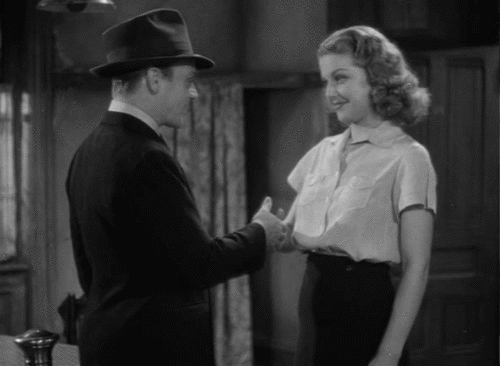 |
| Jimmy and Annie |
Os garotos do grupo chamado de “Dead
End Kids” eram um grupo de jovens que estrelaram a peça “Dead End” e a
adaptação dela para o cinema em 1937. Estes jovens rapazes vinham realmente das
vizinhanças barra-pesada de Nova York – assim como Cagney – e frequentemente
faziam bagunça no set de filmagem – mas não com Cagney, que se mostrou mais
durão que eles. O sexteto original fez três filmes, e com o tempo e com muitas
formações diferentes, o grupo sobreviveu com outras séries de filmes e sob os
nomes de Little Little Tough Guys, East
Side Kids e Bowery Boys. Com o passar do tempo, alguns dos meninos seguiram
carreira solo e outros abandonaram o cinema.
The “dead end
kids” were a group of young boys who starred in a play called “Dead End” and in
the film adaptation of the same name in 1937. Those young boys were really from
the New York tough neighborhoods – just like Cagney – and often caused trouble
on the set – but not with Cagney, who proved to be tougher than them. The
original sextet did three movies together, and with time and with several
formations, the group went on with film series such as Little Tough Guys, the
East Side Kids and the Bowery Boys. In this time, some boys went solo and
others retired from the screen.
Em sua autobiografia “Cagney by
Cagney”, James Cagney chama seu amigo e colega de cena Pat O'Brien de
“inesquecível em mais de um sentido”, descrevendo como Pat estava sempre
alegre, otimista e cheio de energia para trabalhar. No livro Cagney também diz
que o roteiro era meia-boca, e ele e O'Brien tinham de improvisar, pois os
roteiristas judeus não sabiam nada sobre os rituais da Igreja Católica. Além
disso, Cagney diz que se inspirou em um criminoso que conheceu na juventude
para compor o personagem Rocky, copiando seus maneirismos e até a maneira hoje
icônica de cumprimentar.
In his
autobiography “Cagney by Cagney”, James Cagney calls his friend and co-star Pat
O’Brien “remarkable in more than one way”, describing how Pat was always
cheerful, optimistic and full of energy to work. In the book Cagney also says
that the script was kind of bad, which led to him and O’Brien improvising as
the Jewish writers knew nothing about the rituals of the Catholic Church.
Furthermore, Cagney says that he modeled Rocky over a fellow he used to know in
his youth in New York, a pimp who greeted people the way Cagney does in the
picture.
Outro filme em que dois amigos de
infância seguem caminhos muito diferentes é “Vencido pela Lei”, de 1934. Neste
filme, Blackie Gallagher (Clark Gable) se torna um gângster, e seu amigo de
infância Jim Wade (William Powell) se torna advogado. Eles se apaixonam pela
mesma mulher, Eleanor, interpretada por Myrna Loy. Em “Anjos de Cara Suja”, o
que aproxima os amigos e mais tarde os afasta é a maneira como eles tratam os
meninos delinquentes.
Another film
in which two childhood friends follow very different paths in life is
“Manhattan Melodrama”, from 1934. On this film, Blackie Gallagher (Clark Gable)
turns into a gangster, and his childhood friend Jim Wade (William Powell)
becomes an attorney. They fall in love for the same woman, Eleanor, played by Myrna
Loy. In “Angels with Dirty Faces”, what makes the friends closer and later push
them apart is how they handle the dead end boys.
“Anjos de Cara Suja” termina com uma
dúvida que ainda é debatida entre os fãs de cinema clássico – eu
particularmente acredito que Rocky só fingiu estar com medo para satisfazer seu
amigo. Além disso, o filme trouxe uma das performances mais icônicas e imitadas
de Cagney. De acordo com a Wikipedia, este foi o nono filme com maior
bilheteria em 1938. De acordo com o site Ultimate Movie Rankings, ele foi o
quinto. Não importa a posição no ranking, “Anjos de Cara Suja” foi um filme
popular que permaneceu na memória do público e, ao ser assistido hoje, ainda se
mostra interessante.
“Angels with
Dirty Faces” ends with a doubt that is still debated by classic film fans – I
particularly believe Rocky only pretended to be scared to satisfy his friend.
Moreover, the movie brought one of the most iconic and mimicked Cagney
performances. According to Wikipedia, it was the 9th highest
grossing film of 1938. According to the website Ultimate Movie Ranings, it was
the fifth. No matter the position in the ranking, “Angel with Dirty Faces” was
a popular film that remained in the public's memory for decades and is still
interesting when watched today.
This is my
contribution to the Made in 1938 blogathon, hosted by Robin and Crystal at Pop Culture Reverie and In the Good Old Days of Classic Hollywood.
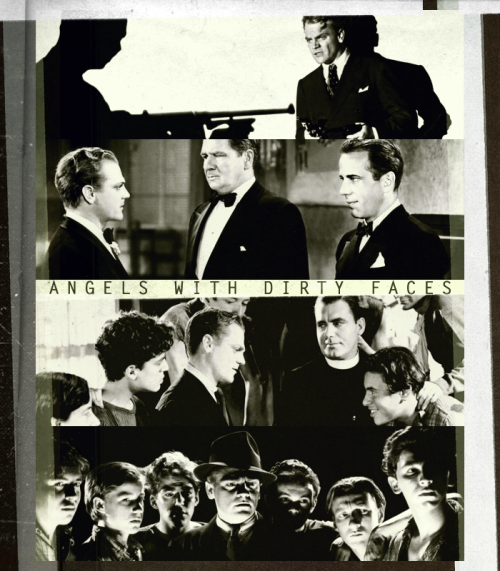
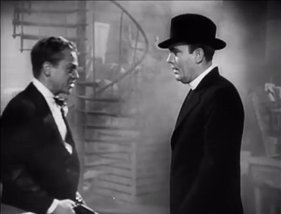
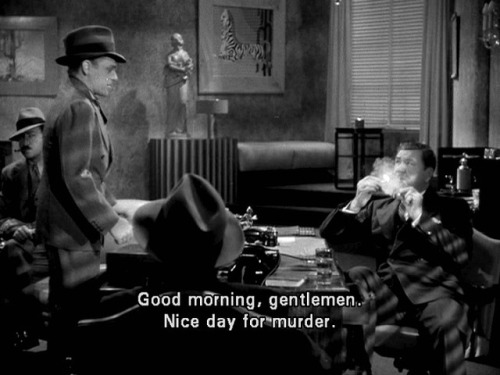
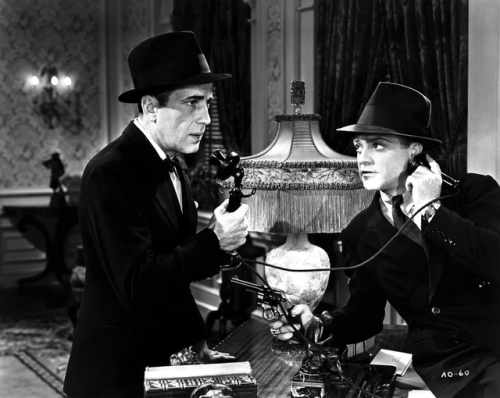
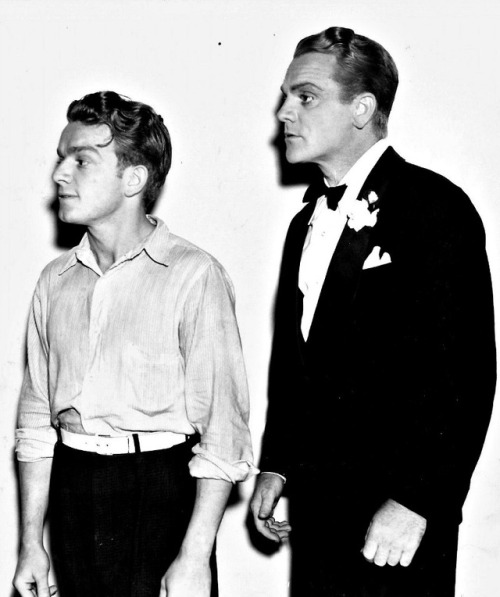
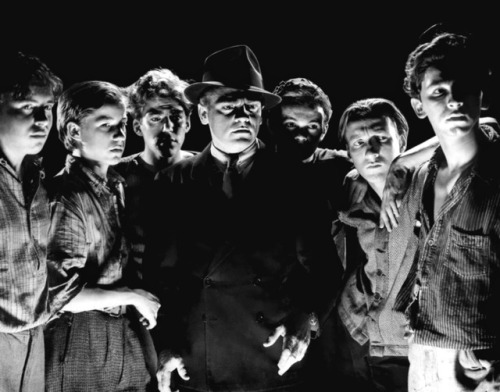
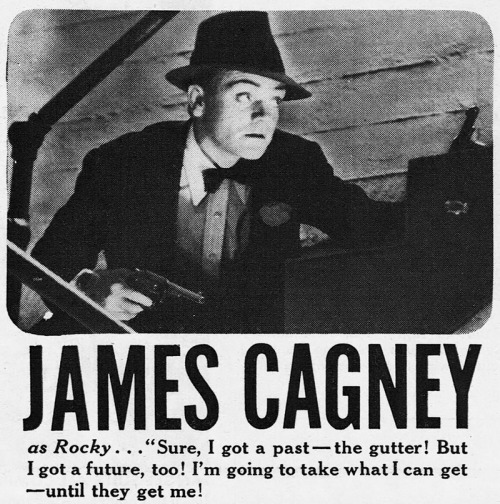
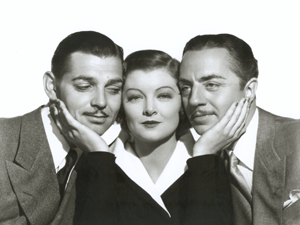
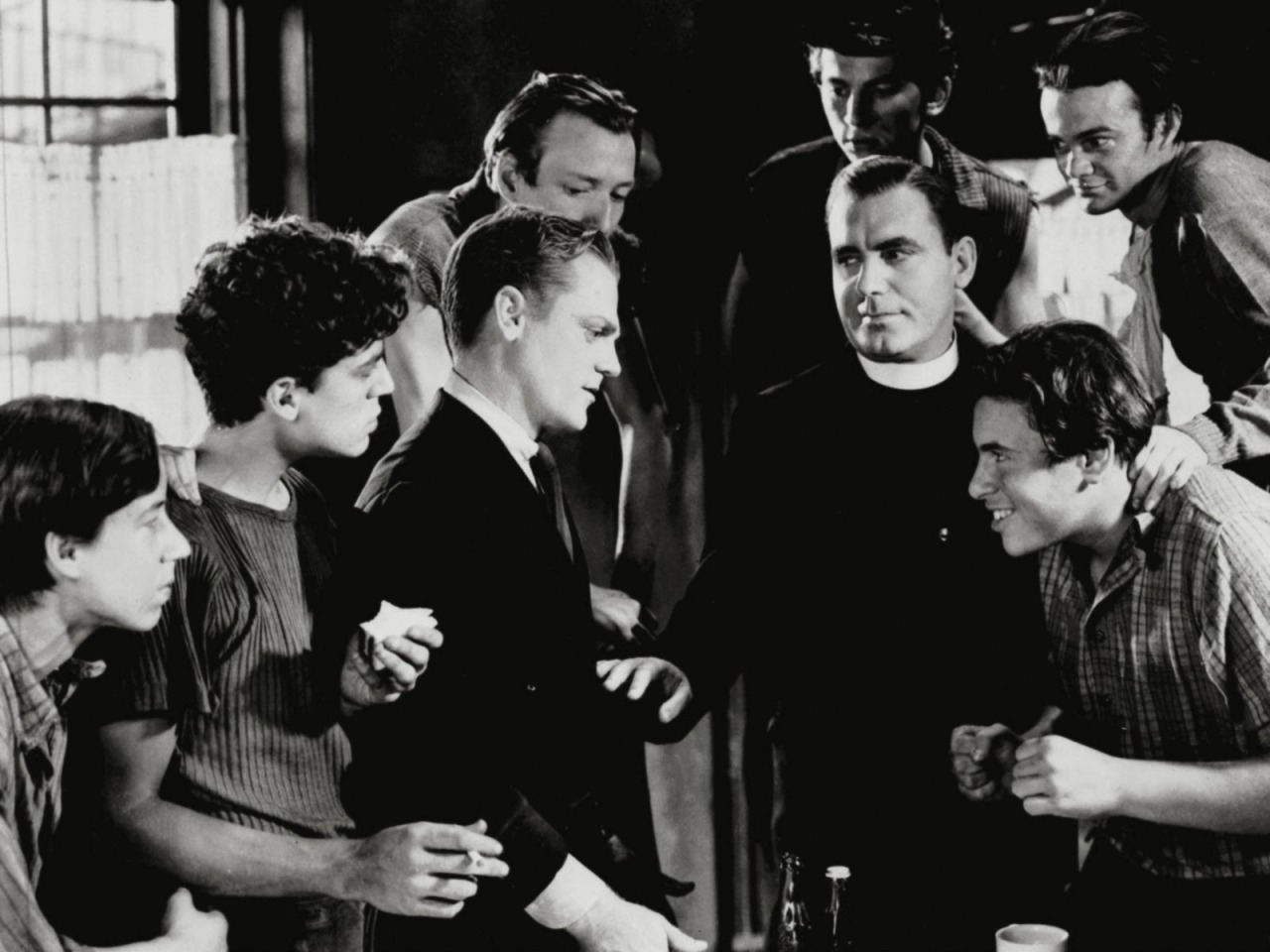
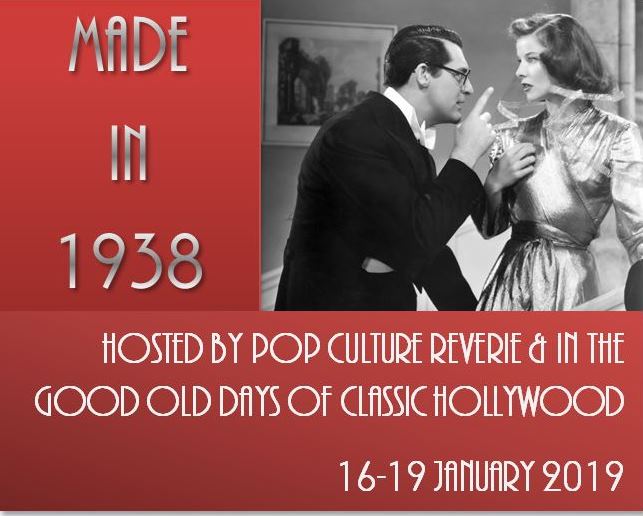
You certainly chose a classic for this blogathon. Cagney as Rocky Sullivan is unforgettable.
ReplyDeleteI debate that ending with myself to this day. When I am feeling particularly put out with life or cynical, then I believe Rocky was a rat. When what I hope is the real me, the optimist, is in control then I know that Rocky was faking for Jerry and the kids.
Believe it or not, I've never seen this film. I've been meaning to for ages. While I was reading your overview, Manhattan Melodrama leaped to mind before you mentioned it. It sounds similar to San Francisco, too, with the lifelong friends being a sketchy guy and a priest. I really should see this movie.
ReplyDeleteThanks for participating.
I seen this film a long time ago when I first became a fan of Bogie. I watched a lot of his movies, and this was one of them. It was so many years ago that I don't really remember much about it. I love James Cagney too, so I really have to treat myself to a second viewing. Thanks for joining the blogathon with this excellent article.
ReplyDeleteI also invite you to read my contribution to the blogathon.
https://crystalkalyana.wordpress.com/2019/01/24/when-icons-collide-bette-and-errol-in-the-sisters-1938/